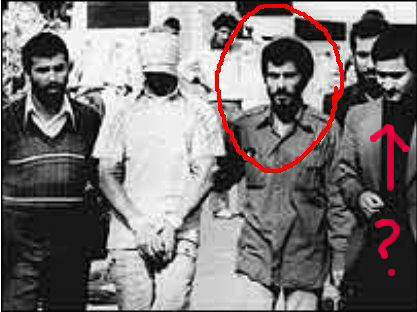 U.S. religious leaders meet with Iran's president, stress diplomacy
U.S. religious leaders meet with Iran's president, stress diplomacyBy Catholic News Service NEW YORK (CNS) --
U.S. religious leaders are "deeply concerned about the prospect of war with Iran," said a professor from a Catholic college who was part of an interfaith delegation that met with Iranian President Mahmoud Ahmadinejad Sept. 26 in New York. But Joseph Fahey, professor of religious studies at Manhattan College in Riverdale, said he left the meeting feeling hopeful because of statements Ahmadinejad made about the "renunciation of war and the quest for peace.""This meeting was an attempt to build bridges with Iran despite the generally hostile reception President Ahmadinejad received here in New York City," Fahey said in a statement issued after the meeting. "We strongly believe that only through formal and informal diplomacy and respect for international law can there be peace between Iran and the U.S."Protests greeted Ahmadinejad while he was in New York to address the U.N. Security Council Sept. 25. He spoke to an audience at Columbia University the same day.The Iranian president has been criticized for questioning whether the Holocaust and the extermination of 6 million Jews during World War II ever happened. He also has said Israel should not exist.In addition, his country's nuclear program has brought the threat of sanctions from the U.S., France and other countries who say Iran is enriching uranium for nuclear weapons, but Iranian officials say the program's goal is to produce energy. In his U.N. remarks Ahmadinejad said the nuclear issue is closed.The interfaith delegation had an hourlong meeting with the Iranian leader. The religious group -- made up of more than 100 faith representatives, including Catholics, United Methodists, Presbyterians, Episcopalians and Unitarians -- stressed the need for diplomacy to prevent war.Organized by the Mennonite Central Committee, the meeting was held under tight security at the Church Center for the United Nations, across the street from U.N. headquarters. It was billed as a "time of dialogue and prayerful reflection among the children of Abraham." It was the third interfaith discussion focused on dialogue between the United States and Iran. The first discussion came during the Iranian president's visit to the U.N. last year; U.S. religious leaders met with him at his hotel. The second was this February, when a group of American religious leaders traveled to Iran to meet with political, academic and religious leaders.The meetings have included frank discussions on the Holocaust, nuclear weapons, the role of religion in peacemaking, Iraq, the Israeli-Palestinian conflict and the use of hostile rhetoric. The Catholic group that was part of the delegation was organized by Pax Christi USA, the national Catholic peace movement, and included theologians, clergy and religious, and leaders of national Catholic organizations."Our message today, both in our words and by our actions, is that our country and our political leaders need to engage Iran in respectful and meaningful dialogue in order to overcome the historical enmity that has existed between our two nations," said Dave Robinson, executive director of Pax Christi USA.Ahmadinejad responded to questions submitted by invited panelists who included Jesuit Father Drew Christiansen, editor of the national Catholic magazine America; Karen A. Hamilton, a Canadian Anglican who is general secretary of the Canadian Council of Churches; the Rev. Chris Ferguson, a Canadian who represents the World Council of Churches at the United Nations; and Glen Stassen, a professor of Christian ethics at Fuller Theological Seminary, an evangelical institution.The gathering closed with comments by Ahmadinejad and the gathering's moderator, Burt Lobe, interim executive director of the Mennonite Central Committee. Lobe described the dialogue as conversation that "occurred in sacred space.""We believe that it is conversation like this, conversation emanating from religious space and out of our particular Christian tradition that carries the voice and call to dialogue," he said. Original article (here)










No comments:
Post a Comment